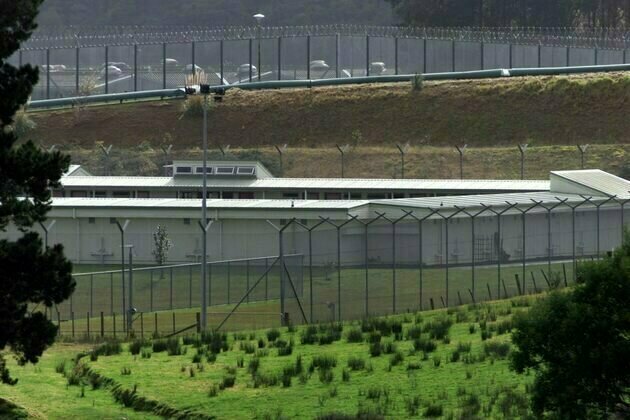'Chaotic, sometimes dangerous places' - why successful rehab for prisoners on remand will be hard to achieve
The Conversation
27 May 2025, 23:40 GMT+10

Last week's budget allocated NZ$472 million in new funding to deal with a growing prison population caused by greater use of prison remand and proposals to increase prison sentence lengths.
The new funding comes on top of $78 million provided in the 2024 budget to extend rehabilitation to remand prisoners, enabled by an amendment to the Corrections Act late last year.
The question is, will any of this make New Zealanders safer?
Overall, the evidence suggests prisons have no real effect on reoffending rates, and pre-trial remand in prison may even increase offending. Prisons only reduce a person's risk to public safety while that person is in prison.
But most people are eventually released, so imprisonment can be a very expensive way of "kicking the can down the road" when it comes to public safety.
That's where rehabilitation comes in. A very specific type, known as "offence-focused rehabilitation", can reduce the risk of prisoners reoffending and make our communities safer. It looks like psychological therapy for anxiety or depression, but the "symptoms" are drivers of crime.
In treatment, these personal causes of crime are identified and then people are helped with new ways of living and behaving. People meet one-on-one or in small groups, for weeks or months, with therapy staff who are well trained and supported.
Treatment works best when people feel safe to abandon the survival strategies they developed in chaotic childhoods - strategies that might have helped then, but now bring them back to prison. That kind of work is slow, painful and delicate.
The Department of Corrections provides one example of this type of rehabilitation: a treatment programme for sentenced men at high risk of violence. This takes place in small units dedicated to therapy.
It reduces reimprisonment by around 11 men per 100 treated. That's a meaningful reduction. Fiscally, the benefits of the programme may far outweigh the costs.
But that success relies on a stable, supportive unit environment, careful monitoring of the quality of treatment, and a population that stays put long enough for treatment to take hold. Just 86 men started one of those programmes last year.
Results from other rehabilitation programmes Corrections provides show they don't reduce recidivism. Why they don't work isn't clearly established. The most likely cause is programmes not being delivered as intended, due to limited resources or other factors.
Prisoners being housed with people not rehabilitating may also undermine progress. Either way, these results illustrate the difficulties of providing effective rehabilitation.
Can effective rehabilitation be provided for people remanded in prison? Nearly half the prison population is on remand, waiting for their trial or sentence - and the number is forecast to increase further. So why not use that time to rehabilitate?
Challenges in creating an environment supportive of rehabilitation increase significantly in remand units. They are chaotic, sometimes dangerous places, with a constantly churning population. Almost half of remand stays last less than a month, most less than two weeks.
People come in with no fixed length of stay, they are often double-bunked with strangers, and sometimes remain locked in their cells for most of the day. Mental illness, gang conflict, bullying and violence are more prevalent than for sentenced prisoners. Transfers happen without warning, and family and whnau may have no direct access.
If offence-focused rehabilitation does not work for most sentenced prisoners, it is less likely to work here. Our recent review of international research found very few programmes for people remanded in prison, and none that were offence-focused rehabilitation. These are not currently environments where offence-focused rehabilitation is workable.
But even if it were workable, under the amended law, few remand prisoners would be eligible because most are awaiting trial and therefore presumed innocent.
Those awaiting sentencing are eligible, but about one-fifth are released on the day they are sentenced because they have already served enough time in prison. Others get sentences too short for a referral to be processed.
The greatest impact on public safety will always come from reducing the factors that send people to prison in the first place.
For those who do end up in prison, offence-focused rehabilitation can make them safer people. But it relies on them taking what is offered and using it; progress can't be forced.
Rehabilitation can be effective but it is not a panacea. From a community perspective, any benefits of rehabilitation are likely to be outweighed by the effects of increasing imprisonment rates.
Extending rehabilitation to remand prisoners is unlikely to change that. Instead, we could put resources into developing innovative options for safely and humanely managing more people on remand or on sentence in the community.
The added benefit would be that they could engage in rehabilitation there, where it actually works better than in prison.
 Share
Share
 Tweet
Tweet
 Share
Share
 Flip
Flip
 Email
Email
Watch latest videos
Subscribe and Follow
Get a daily dose of Auckland Sun news through our daily email, its complimentary and keeps you fully up to date with world and business news as well.
News RELEASES
Publish news of your business, community or sports group, personnel appointments, major event and more by submitting a news release to Auckland Sun.
More InformationInternational
SectionMultiple Israeli troops die as armored personnel carrier is blown up in Gaza
KHAN YOUNIS, Gaza - Seven Israeli soldiers were killed in a large explosion in southern Gaza's Khan Younis area on Tuesday night,...
Khamenei remains in hiding as clerics fast-track succession plans
DUBAI, U.A.E.: Iran's top clerics are quietly accelerating succession plans for Supreme Leader Ayatollah Ali Khamenei, who was threatened...
Monsoon floods batter China, raising climate concerns
BEIJING, China: Extreme weather is once again testing China's resilience, as intensifying monsoon rains trigger floods across major...
UK and France issue heat warnings as temperatures climb
LONDON/PARIS: British and French authorities have warned people to stay safe as an early summer heat wave brings unusually high temperatures...
Muslim bloc calls on Israel to sign Nuclear Non-Proliferation treaty
ANKARA, Turkey: Amid rising tensions in the Middle East, the Organisation of Islamic Cooperation (OIC) announced it would form a new...
Trump goes on social media to announce Israel-Iran ceaeefire
WASHINGTON DC, - U.S. President Donald Trump has claimed a ceasefire has been reached between Israel and Iran. He made the claim on...
New Zealand
SectionVolcanic ash grounds flights to Indonesia, disrupts travel to Bali
LEMBATA, Indonesia: Indonesia's Mount Lewotobi Laki Laki erupted dramatically on June 18, generating substantial ash and smoke plumes....
New Zealand announce schedule for their upcoming home fixtures
New Delhi [India] June 25 (ANI): New Zealand have announced their schedule for the upcoming home summer, with a whopping five teams...
Gambhir's dwindling Test run, Pant's winless streak sum up India's defeat at Headingley
Leeds [UK], June 25 (ANI): India's torrid run with head coach Gautam Gambhir at the helm in Test format hit a new low after a record-shattering...
Tilak Varma begins County stint with sizzling century for Hampshire against Essex
Chelmsford [UK], June 24 (ANI): India's young batting sensation Tilak Varma was cock-a-hoop after marking his County Championship debut...
KL admits being hurt by his Test batting average, explains recent mindset shift following Leeds masterclass
Leeds [UK], June 24 (ANI): Following his brilliant century at Leeds, Indian wicketkeeper-batter KL Rahul spoke on his mindset shift...
KL Rahul continues rich SENA run, overtakes Dravid with third Test ton as opener in England
Leeds [UK], June 23 (ANI): Indian opener KL Rahul continued his brilliant run in South Africa, England, New Zealand and Australia (SENA)...













